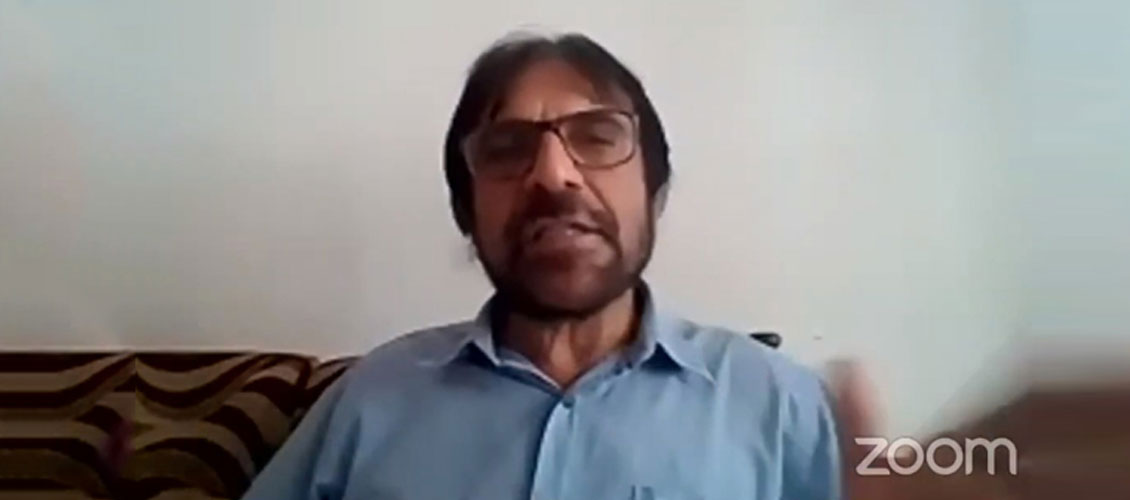
“By and large, in my several years of experience on the IGRC panel, if I were to average out the claims and the amounts recovered, despite my best efforts and those of my colleagues on the panel, the figure does not even work out to 25%,” said Dr Rajendra Ganatra, a veteran insolvency resolution professional (RP) and member of the investor grievance redressal committee (IGRC) of the National Stock Exchange (NSE), while speaking on a webinar organised by Moneylife Foundation.
Moneylife Foundation had organised this webinar on a very short notice for the benefit of investors who were left in the lurch by the recent Anugrah Stock & Broking fraud, with the aim of educating all investors alike on the NSE grievance redressal process and the possible outcome one can expert.
Being a member of IGRC panel for seven years, Dr Ganatra shared his experiences while handling such cases and began his talk with a brief explanation on how the committee has been empowered by regulators for the benefit of investors.
“IGRC is not a judicial body, it’s a redressal or resolution body. It does three things – analyses documents and figures pertaining to the case, it listens to both parties namely the complainant and the trading member or broker, and then comes up with its recommendations. But before recommending a solution, it tries to come up with an amicable settlement,” explained Dr Ganatra.
Using examples of previous orders that the IGRC had passed, Dr Ganatra successfully explained not only the decision making process of the committee, but also the outcome that investors can expect in such cases. In one such instance, while describing a case of unauthorised trading on an investor’s account, he said, “Observing the facts of the case, when we realised that the investor had genuinely and unwittingly given the authorisation as it was wheedled out of him by relationship managers, there is an obvious and clear modus operandi on the broker side. We treat this as a case of undue influence and pass an order accordingly. The orders we pass in such cases are in favour of the investor and have been upheld by an arbitration panel as well.”
According to Dr Ganatra, in cases of unauthorised trading, trading members often try to use an alibi saying that “the investor has accepted regular pay-ins and pay-outs, and acceptance of such transactions are inherently acceptance or authorisation of the respective trade.” This reasoning according to him is flawed, “an unathorised trade does not become authorised, just because someone has accepted pay-ins and pay-outs. The investor did not know what was going on and this does not make the trade authorised.”
In his experience, some trading members have also attempted to claim the law of limitations to be applicable in cases where investors have only realised years later that unathorised trading had taken place in their accounts. Again, Dr Ganatra believes this to be a flimsy excuse saying that, “the lime limit is not a factor if there is no valid contract. The law of limitation only applies if there is a valid contract and this is not the case in an unauthorised trade.”
Throughout his talk, Dr Ganatra repeatedly emphasised that “all communications between an investor and a trading member are very obvious and can be proven. It is the responsibility of the investor to gather sufficient evidence and prove the fact of unauthorised trading to an IGRC panel.”
“Analyse your ECNs and prove that there is no question of a pre-trade confirmation, and that confirmation was extracted from you in an illegal manner. Examine the logs and trades, show that these trades were unauthorised and were done only to hoodwink you and to gain high brokerages,” he further added.
His key advice to troubled investors of Anugrah Stock & Broking was to take the time to analyse all transactions on their trading account and accordingly decide whether there was a case of unauthorised trading or misuse of funds.
These investors essentially need to painstakingly go through each mail and message, segregate those that were authorised and those that occurred unbeknownst to them.
Looking at the facts of the Anugrah case that are present in the media, Dr Ganatra feels that a forensic as well as operational audit will be necessary, as he believes that investors' money has been illegally diverted. However such audits are not something that can be mandated by an IGRC panel and will have to be taken up through a legal route under the guidance of a knowledgeable advocate.
The webinar was attended by over 200 concerned investors and Dr Ganatra also took the time to address a few queries from the participants.
Watch a Video Recording of the Session:

